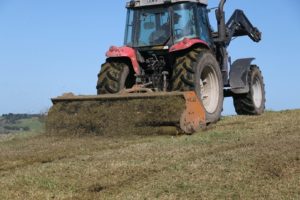With farm machinery sales going through the roof this spring, you might be tempted to think that all you need for a well-working farm is the right equipment.
Your equipment is a big part of what makes your farm successful, but just like livestock and grain, your farm machinery needs to be taken care of for best results. After all, there’s more to farm machinery than just turning the ignition.
We don’t normally associate paperwork with farming, but if you want to get the most out of your farm machinery, then it pays to hit the books and get to know your farm management principles.
Managing your farm machinery is key to optimising your efforts. If you’ve made the smart decision of investing in Abbey or Celli farm machinery, then you want your machines to last for as long as possible.
Read on for our quick and easy checklist for bringing your farm machinery management up to scratch. You can even print it out and share it with your team!
Defining Farm Machinery Management
But first, what is farm machinery management? Machinery management is the process behind reducing costs on the field. By utilising careful recording keeping, you can be smarter about your selection of farm machinery and the decisions you make relating to maintenance, replacement, time management, and machine usage. Of course, great machinery management starts with great machines, such as manure spreader, Abbey side muck spreaders or Celli power harrows, but from there it comes down to taking proper care of your machinery to get the most out of your investment.
Farm Management Checklist
To keep on top of your machinery management, here at Farmgard we recommend introducing the following steps if you haven’t done so already. All you need is a pen, pencil, eraser, logbooks, and your machinery user manuals, and maybe a file system or storage unit for safe keeping.
- Learn how to use the machinery according to the manufacturer’s operating manual. Keep the manual handy so you can refresh your memory as needed. The classic place to keep them is the glove box, but a storage system may be a safer bet so pages don’t become crumpled or damaged.
- Keep detailed records of all the work done by and to your machinery (dates, times, duration, locations, fuel usage, etc). Not only will this help you predict usage costs, this will give you a good handle on what your machines are capable of, when they may be in need of maintenance, as well as a handy history of what jobs they’ve completed. Coupled with this, you should also keep a record of maintenance itself, what was wrong, what parts were repaired or replaced, by whom, and when, so you can easily assess whether your machinery is in good working condition and safe to run.
3. Use the above information to review problems, rate the quality of the outcome, improve field efficiencies, cut costs and complete more work.
Order Farmgard Machinery Today
Contact us 1800 FARMGARD and speak to one of our experts to learn more about how our fantastic Abbey and Celli farm machinery range. For more information about Winter Ground Preparation, We can help you create a more productive and efficient work environment.


